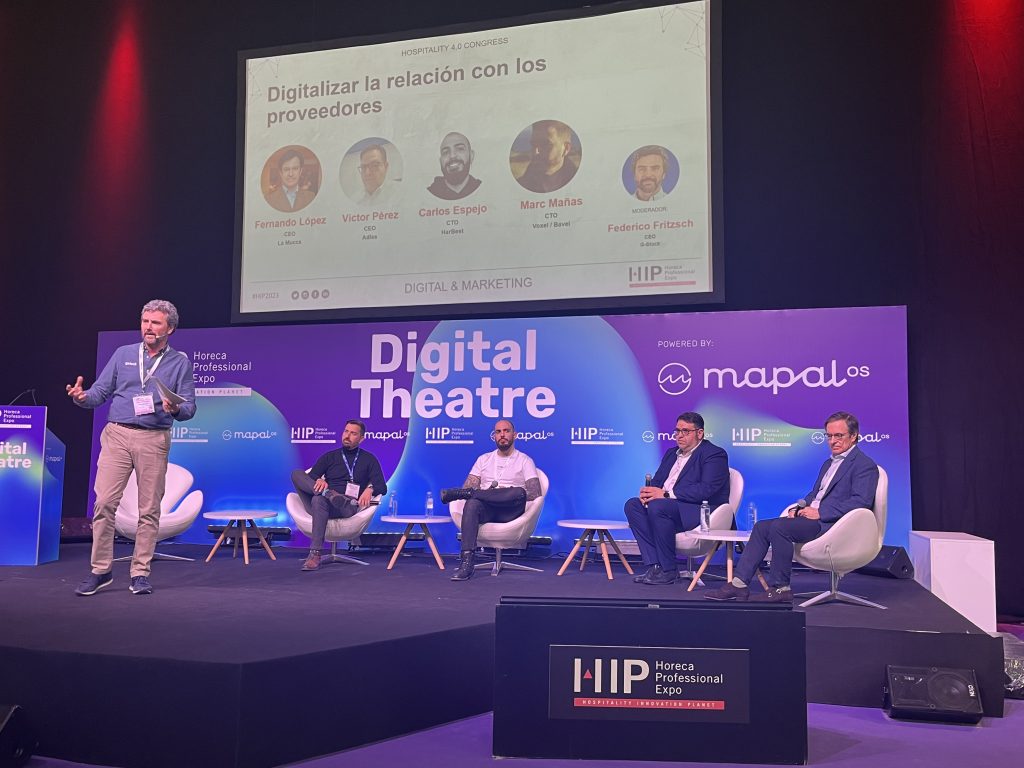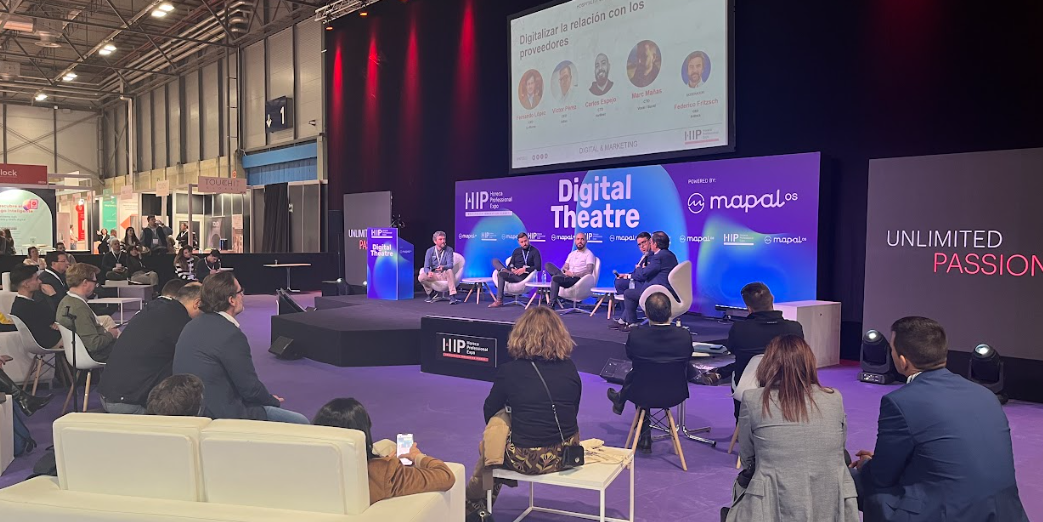In an ever more digitalized environment, it is essential that the relationships between supplier companies and hotels to also make progress in terms of automation.
In this blog post we reflect on some of the concepts covered in the conference called “Digitalize the relationship with suppliers” that was held within the HIP framework. The session moderated by Federico Fritzsch Inglés (CEO of G-Stock), included the participation of Carlos Espejo Nieto (CTO of Harbest), Fernando López Hermida (CEO of La Mucca), Marc Mañas de Khuen (Chief Product Officer of Voxel) and Víctor Pérez Martín (CEO of Adiss).
The importance of automating back-office processes
In the hotel sector, which is in general characterized for having relatively tight margins, it is important to implement processes that allow avoiding errors and becoming more agile. Thus, Fernando explains that even though 40% of the supplies of their restaurants go through their central procurement office, they must work with nearly 270 suppliers, and the business relationships with them need to be managed.
The automation of back-office processes such as the issuance and accounting of purchase orders, delivery notes and invoices can contribute to maximizing the efficiency of these processes. Additionally, it can facilitate and strengthen the relationship with suppliers.
The technological aptitude of suppliers
For the hotel and restaurant sectors, the degree to which suppliers have adopted technology is an added value that is increasingly gaining more weight. “Beyond the quality of the product, the price and services, the degree of digitalization of the supplier may be a determining factor when it comes time to their selection”, says Federico. Fernando corroborates this argument: “We need to find suppliers that can send us supplies in a manner that is automated, processed and simple”.
Likewise, Marc adds that “for companies accustomed to collaborating with suppliers that have more automated processes, it may be a challenge and an operational setback to work with suppliers that are less immersed in digitalization”.
Status of the digitalization between supplier companies, hotels and management platforms
In the hospitality sector, the front-office (areas that interact with the customer) has experienced a greater digitalization than the back-office (areas that do not interact directly with consumers).
Marc believes that “the need to work in a more digitalized manner in the hotel and restaurant sector promotes the fact that many of these companies already have workers or even departments that are technology experts”. And everything seems to indicate that this trend will continue growing.

As stated by Carlos “It is important to set standards for everyone: suppliers and management platforms to help make the job of hoteliers easier”. Víctor is convinced that “We are undergoing a period of digital transformation. Not only do we have the obligation, we are going to be forced to make this transition to a data model where all applications are connected. When this occurs the implementation costs will be reduced and will no longer pose a problem, and we will compete for the best product”.
The speakers agree on the fact that there is still much work to do by all sectors. However, Fernando says that “the restaurant business is the last link. We are the ones who interact directly with customers and this is what we must focus on”.
The adopting of technological solutions and the automation of processes not only streamline tasks, but also generate efficiency, improve communication and promote the growth of the businesses. It is crucial for the hotel and restaurant sector to adapt to new market demands and take advantage of the opportunities provided by technology. “We need to work the ‘coopetence’ concept; in other words, cooperate with competitors” concludes Fernando.











